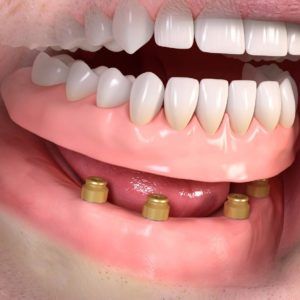Dentures vs Overdentures

Tooth loss can significantly affect daily life, but modern restorative dentistry offers several solutions for restoring function and confidence. At Delaire Dental in New York, NY, Dr. Michael Lee and Dr. Arielle Scherz provide both traditional dentures and implant-supported overdentures—two distinct treatment options tailored to the needs, lifestyle, and oral health of each patient. While both replace missing teeth, they differ in comfort, stability, longevity, and the way they interact with the underlying bone. Understanding the differences can help patients make informed decisions and receive care that supports both aesthetics and function.
Why Tooth Replacement Options Matter in Overall Healthcare
Tooth loss is not simply a cosmetic issue. From a medical standpoint, missing teeth affect nutrition, speech, digestion, and mental health. Patients with significant tooth loss may avoid healthy foods like fruits and vegetables due to chewing difficulty, which can lead to poor nutritional status and systemic complications. For healthcare providers managing conditions like diabetes, cardiovascular disease, or osteoporosis, ensuring patients can eat properly and maintain oral health is essential. Replacing teeth with stable prosthetics—such as dentures or overdentures—prevents jawbone deterioration, improves diet, and helps reduce chronic inflammation associated with poor oral hygiene. Collaborating with dental professionals can ensure patients have access to solutions that improve overall wellness, not just their smiles.
Common Indicators That You May Need Full Arch Tooth Replacement
- Complete or near-complete tooth loss in one or both arches
- Difficulty chewing or biting into food
- Slurred or unclear speech due to missing teeth
- Gum irritation or sore spots from current dentures
- Facial sagging or sunken cheeks due to bone loss
- Loose-fitting or unstable existing dentures
- Jawbone deterioration seen on dental imaging
Why Choosing Between Dentures and Overdentures Requires Careful Evaluation
Traditional dentures rest directly on the gums and rely on suction or adhesives for retention. While they offer a non-surgical, more affordable solution for tooth replacement, they can become unstable over time as the jawbone resorbs, leading to discomfort and decreased function. Overdentures, on the other hand, are anchored to dental implants placed in the jawbone, providing a more secure, longer-lasting solution. They help preserve bone volume, improve chewing power, and reduce the slipping often associated with traditional dentures. However, overdentures involve a surgical procedure and may require additional healing time. Patients must consider cost, bone health, lifestyle, and long-term expectations when choosing between the two. At Delaire Dental, we help patients weigh these factors through a personalized consultation and examination, offering clear guidance on which solution will meet their goals most effectively.
Step-by-Step Comparison: How Dentures and Overdentures Are Completed
Both options follow a structured process, but overdentures require additional surgical steps.
For Traditional Dentures:
- Initial Evaluation and Impressions: We begin with a full oral exam and take impressions of your gums and any remaining teeth to design your custom prosthetic.
- Bite Registration and Try-In: A wax model is created to determine your bite and esthetic preferences. Adjustments are made before the final denture is fabricated.
- Final Delivery: The completed denture is placed and adjusted for fit and comfort. Follow-up visits may be necessary to refine the fit as your gums adapt.
For Implant-Supported Overdentures:
- Consultation and Imaging: We perform 3D imaging and bone evaluation to determine implant suitability and map out placement locations.
- Implant Placement Surgery: Two to four implants are surgically placed in the jawbone. Healing typically takes 3–6 months while the implants fuse with bone.
- Attachment of Overdenture: Once healed, a custom overdenture is fabricated and fitted to snap securely onto the implants. This removable prosthesis offers increased retention and stability.
Maintaining Oral Health with Dentures and Overdentures
Regardless of the type of restoration, prevention plays a key role in long-term success. Patients with traditional dentures should remove and clean them daily to prevent bacterial buildup and irritation. Gums should be brushed gently with a soft toothbrush, and dentures should be stored in a soaking solution overnight. Overdenture users must brush around their implants and clean the denture attachments daily to prevent plaque accumulation and protect the supporting bone. In both cases, regular dental visits are essential to monitor gum health, detect pressure spots, and ensure the fit remains comfortable. Avoiding tobacco, eating a balanced diet, and staying hydrated all support oral tissue health. Preventive care extends the lifespan of your prosthesis and reduces the risk of infections or complications.
A Stronger Smile and Better Quality of Life
Patients with well-fitting dentures or overdentures often experience life-changing improvements in daily function and self-esteem. Traditional dentures restore basic chewing and esthetics but may require more frequent adjustments due to ongoing bone loss. Overdentures provide more stability, support facial structure, and allow patients to enjoy a broader range of foods with greater confidence. Both options improve speech clarity and eliminate the social discomfort of missing teeth. Most patients find that replacing their teeth—whether with dentures or implant-supported solutions—helps them re-engage with social settings, eat comfortably in public, and regain a sense of control over their health. With the right care, either option can offer lasting comfort and functionality.
Frequently Asked Questions
What’s the main difference between dentures and overdentures?
Traditional dentures rest on the gums, while overdentures are supported by dental implants. Overdentures offer greater stability and help preserve the jawbone.
Do overdentures hurt more than dentures?
The placement of implants involves a surgical procedure, which may cause temporary discomfort. Once healed, overdentures are generally more comfortable than traditional dentures.
Can I switch from dentures to overdentures later?
Yes, if you have sufficient bone or are willing to undergo grafting, you can transition to overdentures. A consultation will help determine your suitability.
How long do dentures and overdentures last?
Dentures typically last 5 to 7 years, while overdentures can last 10 years or more with proper maintenance. The implant components can last much longer.
Are overdentures more expensive?
Yes, they typically involve higher upfront costs due to implant surgery and materials. However, they often provide better long-term value and function.
Take the Next Step Toward a Confident, Functional Smile
Choosing between dentures and overdentures is a personal decision—one that depends on your oral health, lifestyle, and long-term goals. At Delaire Dental, we provide clear, compassionate guidance to help you make the right choice and deliver treatment with the highest standards of precision and care.
If you’re exploring full-arch tooth replacement options in New York, NY, schedule a consultation with Dr. Michael Lee or Dr. Arielle Scherz today. We’ll assess your needs and help you find the solution that restores your smile, function, and quality of life with confidence.
